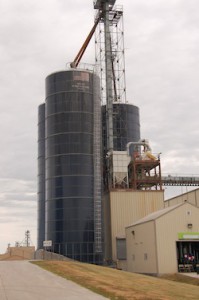Today was the official release of the Associated Press (AP) article, “The secret, dirty cost of Obama’s green power push,” and the ethanol industry is outraged at the way corn ethanol was portrayed and by how Iowa farmer and retired Methodist pastor Leroy Perkins says his quotes were misrepresented. With the ethanol industry’s outrage gaining momentum, the AP responded by saying “he was certainly aware” of the story’s focus and that “those who were in the interview with him remember it entirely differently.”
“Maybe calling a Methodist pastor a liar is standard defense protocol for DC-based AP reporters, but in southern Iowa that’s an accusation we take very seriously,” said IRFA Executive Director Monte Shaw. “AP should own up to its poor reporting instead of doubling down on their misrepresentations. Just like the AP hit piece on ethanol, once again the AP doesn’t have its facts straight. IRFA contacted the others involved in the AP interviews in Wayne County and they stand behind Leroy. I doubt there is anyone not on AP’s payroll that remembers things their way.”
Also clearly upset by the article is the National Corn Growers Association (NCGA) whose members are corn farmers, many who grow and sell their corn crop to local ethanol plants.
“Today’s controversial story on corn ethanol and land use appears to simply be based on a complete misunderstanding of modern agriculture generally and the Conservation Reserve Program specifically, but unfortunately, the problem is much deeper,” said NCGA President Martin Barbre.
“It is discouraging that the Associated Press appears to be following a political agenda which clearly targets our only renewable alternative to imported petroleum. Even the headline is a colorful but inaccurate indictment. – ‘The secret, dirty cost of Obama’s green power push.’ Secret? There are no secrets in how land is used, as their own reporting shows. Acres are tracked, and the U.S. Department of Agriculture guarantees a high level of transparency. No, these watch words ‘secret’ and ‘dirty’ show clearly that the reporters were sensationalizing the issue to a high degree, which is conduct unbecoming a true journalist,” he continued.
“The fact is, farmers are doing a better job every day of meeting the duel challenges of productivity and sustainability. Land use per bushel is down 30 percent and soil loss is down 67 percent since 1980. Thanks to renewable corn ethanol, we’re using 465 million fewer barrels of oil each year. Thanks to corn ethanol, rural economies are improving. And, yes, the air is getting cleaner. We have no regrets about these outcomes,” added Barbre.
Many in the industry point out that “AP’s standards say they ‘abhor inaccuracies, carelessness, bias or distortions’ yet they say the article contains each of these things. In addition, the biofuels industry is calling foul for not having even one corn ethanol producer interviewed for the article, and there are nearly 40 operational ethanol plants in Iowa.
 ACE Executive Vice President Brian Jennings noted, “At best, the AP article is lazy journalism, but at worst, it appears purposefully designed to damage the ethanol industry. There was an incredibly reckless disregard for the truth in the handiwork of this hit-piece. AP has been promoting this story by bragging about the number of reporters involved and AP’s connections in all 50 states, and yet that army of reporters missed or ignored a number of errors that could have been easily checked and avoided. From small errors, such as (early versions of the story) identifying Tom Daschle as a former Senator from Iowa rather than South Dakota; to big errors like indicating corn is being grown on ‘virgin lands’ for ethanol production – something that is specifically prohibited by the Renewable Fuel Standard, the article is clearly less concerned with accuracy than it is maligning ethanol.”
ACE Executive Vice President Brian Jennings noted, “At best, the AP article is lazy journalism, but at worst, it appears purposefully designed to damage the ethanol industry. There was an incredibly reckless disregard for the truth in the handiwork of this hit-piece. AP has been promoting this story by bragging about the number of reporters involved and AP’s connections in all 50 states, and yet that army of reporters missed or ignored a number of errors that could have been easily checked and avoided. From small errors, such as (early versions of the story) identifying Tom Daschle as a former Senator from Iowa rather than South Dakota; to big errors like indicating corn is being grown on ‘virgin lands’ for ethanol production – something that is specifically prohibited by the Renewable Fuel Standard, the article is clearly less concerned with accuracy than it is maligning ethanol.”
“Ethanol isn’t some public figure, abstraction, or government program that can be maligned without consequence,” added ACE’s Jennings. “Ethanol is a real product, manufactured by real businesses, many owned by farmers, and those businesses provide thousands of good jobs and billions of gallons of clean, affordable, domestic renewable fuel to real people. They deserve to be protected from media that is helping spread lies about the ethanol industry by recklessly disregarding the truth. AP needs to correct the errors in this story or pull it and investigate how the story was created.”
Click here to see the Renewable Fuels Association’s “AP Article Fact Check”. Click here to see Fuels America’s fact check.


